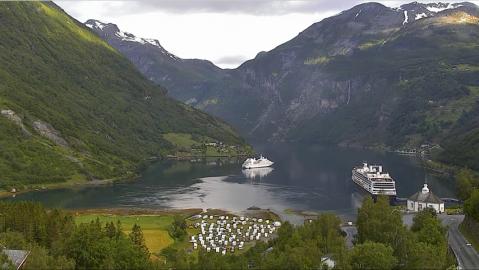"1 in 10 Icelanders write books." This curiously repeated statistic, (accuracy notwithstanding) stems from Iceland's proud literary heritage. The North Atlantic island nation is renowned for its contributions to the arts, gender norms, and governance. This episode's guest, Egill Bjarnason (a writer himself) gives us some insight into the origins of this cultural dynamism, the modern policies that foster its continuation, and the resulting influence beyond Iceland across the globe.
At just over 370,000, Iceland's population is surpassed by some Caribbean countries (Trinidad & Tobago is 1.3 million). Like the Caribbean, in the art world, the Nordic nation punches well above its weight. Today, Icelandic works are a common sight on lists like the NYT Bestsellers. Egill surmises that this propensity for storytelling is rooted in the realities of the harsh Icelandic winter. From as far back as the early Norse settlers, stories were the main entertainment during the months when everyone was stuck indoors. This skill has been passed down and cherished through many generations and continues today in the form of book writing. In Reykjavík, one might visit a bookstore and come upon books written by a neighbor, a colleague, or any other unassuming member of the community. How is it that not only has the tradition continued, but remained so accessible that anyone can put pen to paper and have their work published? Egill says that's where government grants come in. The Icelandic government acknowledges the importance of the arts to its citizens, through financial assistance and incentives for would-be novelists, musicians, and more. In essence, art forms a core part of the famous Nordic Welfare State.
In 1980, Iceland made history as the first country in the world to elect a female head of state democratically. Vigdís Finnbogadóttir, served as president from 1980-1996. She initially ran simply to show that a woman could run a political campaign and did not expect to win. Today, Iceland tops global rankings in terms of gender equality, orientation equality, and other human rights fronts. Egill attributes this to the global financial crisis of 2008, in which Iceland was a pivotal player in the financial downturn. In the aftermath, the country took steps to reform the business sector, starting with the hiring processes from the bottom up. Diversity and anti-discrimination policies were introduced, aimed to reform and prevent a repeat of what was perceived as a non-ideal social environment. These policies have evolved and have positioned Iceland as one of the most progressive countries in this space.
Iceland's global influence can be seen in politics all over. A deep cultural history that aids in molding and directing modern policy could serve as a guide or inspiration for countries in the Caribbean. Iceland is proof that size is irrelevant to your international footprint in the arts, governance, and more - a lesson that warrants reiteration for the Caribbean and its leadership.
At just over 370,000, Iceland's population is surpassed by some Caribbean countries (Trinidad & Tobago is 1.3 million). Like the Caribbean, in the art world, the Nordic nation punches well above its weight. Today, Icelandic works are a common sight on lists like the NYT Bestsellers. Egill surmises that this propensity for storytelling is rooted in the realities of the harsh Icelandic winter. From as far back as the early Norse settlers, stories were the main entertainment during the months when everyone was stuck indoors. This skill has been passed down and cherished through many generations and continues today in the form of book writing. In Reykjavík, one might visit a bookstore and come upon books written by a neighbor, a colleague, or any other unassuming member of the community. How is it that not only has the tradition continued, but remained so accessible that anyone can put pen to paper and have their work published? Egill says that's where government grants come in. The Icelandic government acknowledges the importance of the arts to its citizens, through financial assistance and incentives for would-be novelists, musicians, and more. In essence, art forms a core part of the famous Nordic Welfare State.
In 1980, Iceland made history as the first country in the world to elect a female head of state democratically. Vigdís Finnbogadóttir, served as president from 1980-1996. She initially ran simply to show that a woman could run a political campaign and did not expect to win. Today, Iceland tops global rankings in terms of gender equality, orientation equality, and other human rights fronts. Egill attributes this to the global financial crisis of 2008, in which Iceland was a pivotal player in the financial downturn. In the aftermath, the country took steps to reform the business sector, starting with the hiring processes from the bottom up. Diversity and anti-discrimination policies were introduced, aimed to reform and prevent a repeat of what was perceived as a non-ideal social environment. These policies have evolved and have positioned Iceland as one of the most progressive countries in this space.
Iceland's global influence can be seen in politics all over. A deep cultural history that aids in molding and directing modern policy could serve as a guide or inspiration for countries in the Caribbean. Iceland is proof that size is irrelevant to your international footprint in the arts, governance, and more - a lesson that warrants reiteration for the Caribbean and its leadership.
- Category
- ATLANTIC ROAD
Commenting disabled.













